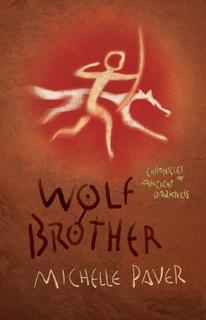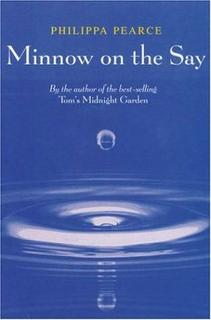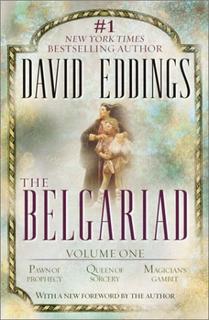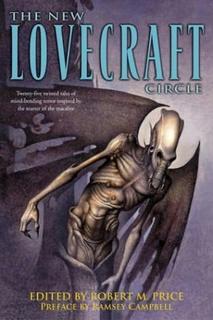
There, with Stephen King behind me, I’ve finally returned to my original pace. Yep, I’m done with Wolf Brother, in less than a day too, and when that happens, you know what that means, haha. Well even if it is no secret that I have a passion for books that have wolves in them, I’ll try my best not to let that influence my judgment in this review. Now Wolf Brother has been out for quite a while now, truthfully. I remember seeing a book review in the paper, comparing its success to the success of Harry Potter. (Another book that has received this form of praise is Lionboy, though I have yet to try that one out. Guess wolves come first.) Being a diehard Potter fan, though my enthusiasm for the series has particularly declined since the tragedy that was Order of the Phoenix, I would not say that this book is better than Harry Potter, but that’s only because in my honest opinion, the two books are two different categories altogether. Although they’re both categorized under the Young Adult section, the brand of fantasy involved in the two are significantly different, which means that Wolf Brother is a truly original concept not derived in any way from Rowling’s work.
Now, where Rowling painted a world of magic and sorcery hidden in our own world, colored it with bright characters and interesting objects, Michelle Paver takes a world that could very well exist in our own, set right after the thaw of the Ice Age, when Man was still exploring the vast lands. (Which specific era, Mesolithic, Paleolithic, don’t ask. I’ve forgotten how to tell the difference). The main character is Torak, a young boy who’s just lost his father to a bear possessed by a demon. At his deathbed, his father sends him on a quest tied to the destruction of the demon-bear, as if the bear isn’t stopped, the Forests will all die. Or something catastrophic of that magnitude. The opening of the book immediately thrusts us into that situation, which might prove to be a little too fast for some people, but if you’re willing to ignore it, the story steadily builds up at an interesting pace, revealing more things about Torak’s past and his world as the story progresses. Seeing that the premise of this story is basically a journey, it would of course be filled with some other characters, friends and enemies. Although the demon-bear would be considered as the penultimate monster-enemy-that-deserves-a-climactic-battle in the finale, the twist of logic in this story is that Torak’s enemies include nature itself. Fever, avalanches, wild animals, you get the picture. Magic exists in this book, though not in such an obvious way as portrayed in Harry Potter where wands and flashy lights define ‘magic’. Magic as depicted in this book is more primal, and less obvious, though the end of the book hinted that even more would be in store for the sequels, leaving me obviously craving more.
As for the story’s pace, as the opening was a bit sudden, the rest of the story falls in place rather quickly, and takes you through a roller-coaster ride which will keep you turning pages, as there is seldom a long moment of quiet rest for the main characters. This doesn’t mean that the author doesn’t take time to detail her world enough though, in fact, the journey takes Torak far enough for the reader to appreciate how the world was before machines and stone buildings were made. The raw power of nature, and the tribal spirit of Man, Michelle Paver pulls off this piece of work wonderfully. I wouldn’t be able to judge yet, but if I’m not mistaken, the ‘Clan of the Cave Bear’ series would possibly be comparable to this story, though Clan of the Cave Bear would probably be targeted for older audiences, judging by its thickness. One of these days, if Michelle Paver takes too long to write a sequel, I might just pick it up.
If there was any flaw in this book as far as I can tell, it’s that the pace can sometimes get a bit too fast, to a point where you probably won’t feel for some characters as much as you would like to. You’ll probably realize this at the very end, however, so don’t worry about having to drag yourself through this book, because you definitely won’t. In a sense that this book is a definite crowd pleaser for adults and children alike, in the end you could probably compare it to Harry Potter after all. So from now on, maybe I shouldn’t look at that ‘as good as Harry Potter’ tag so skeptically. Judging from past disappointments, however, I will still avoid the ‘better than Phillip Pullman’s Dark Materials’ tag, and the ever-annoying, still rampant in the market ‘BETTER THAN THE DA VINCI CODE’ tag.
All in all, yeah, I’m satisfied.
8.5 out of 10. Bring on the sequel, Ms. Paver!
P.S-This author would like to point out that the ‘better than Da Vinci Code’ tag, has only not disappointed him once, and that was for ‘The Rule of Four’.







